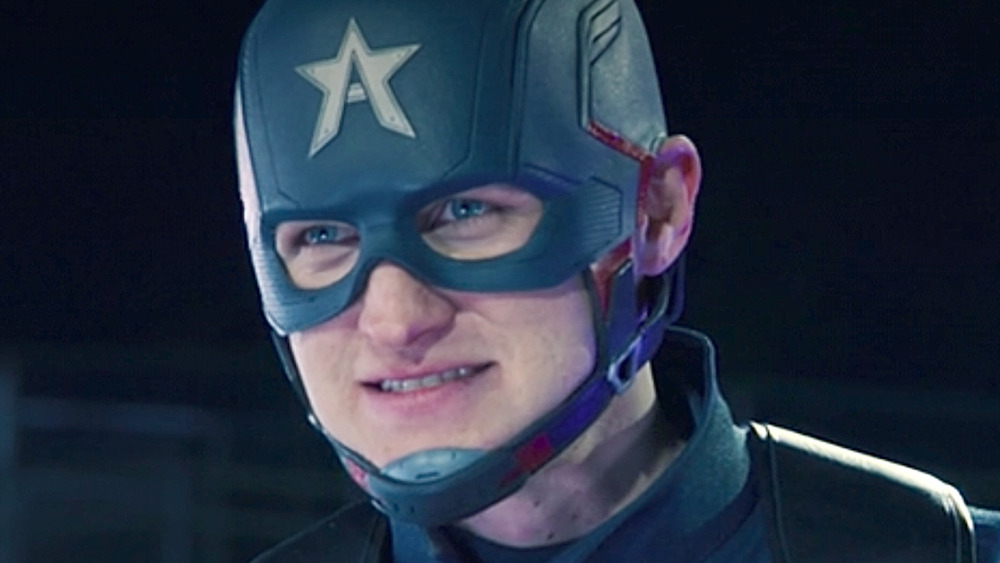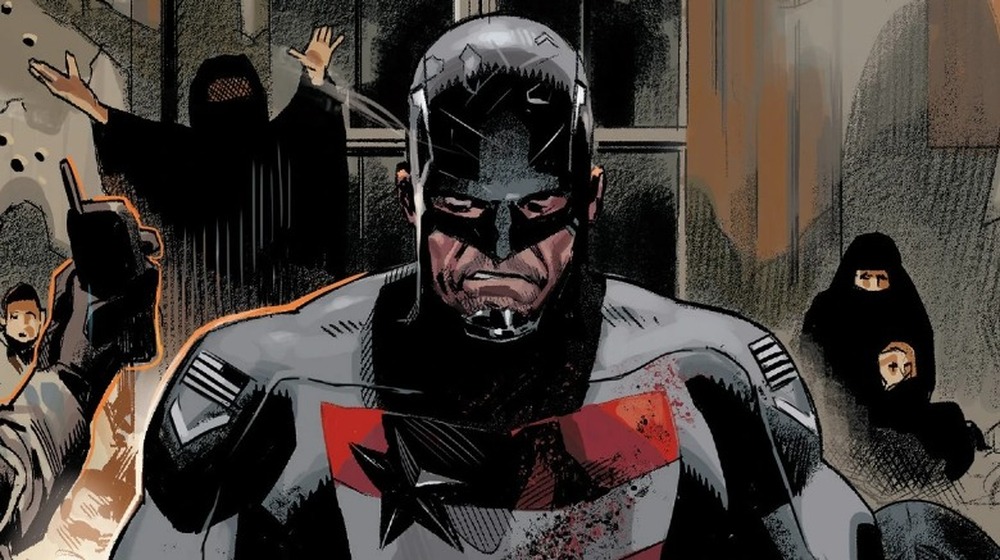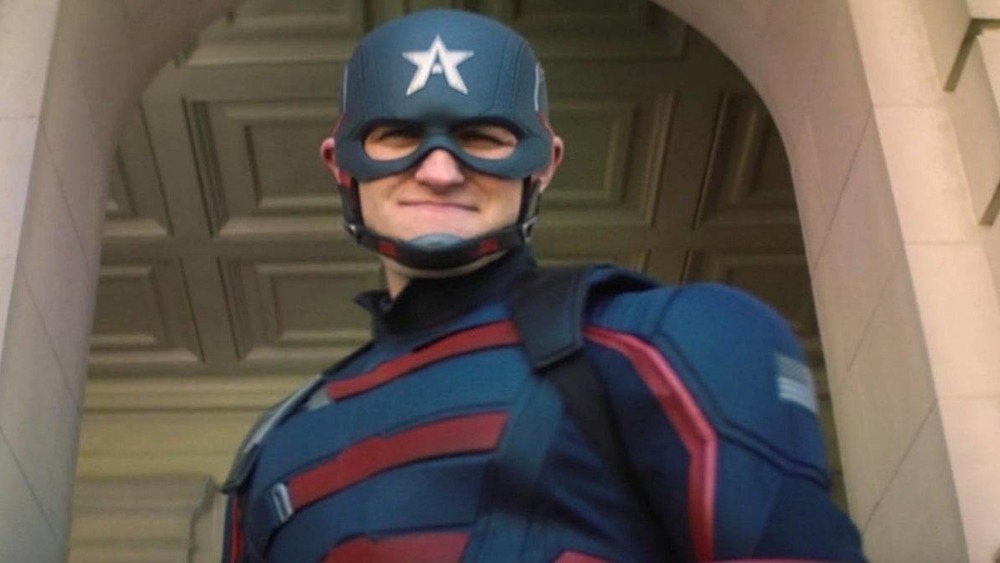How The Falcon And The Winter Soldier's John Walker Is Different From The Comics Version
Characters in the Marvel Cinematic Universe tend to honor and reference the source material while also forging their own paths. Some aspects are immutable, such as Iron Man/Tony Stark's (Robert Downey Jr.) origin as a weapons manufacturer who is kept alive via a miniature power plant in his chest that keeps shrapnel from reaching his heart. However, his egocentric playboy personality is the invention of the movies. This pattern invades every MCU property, including The Falcon and the Winter Soldier.
The Falcon and the Winter Soldier's first episode introduces a bunch of characters both new and familiar to Marvel comics fans. These include the Flag-Smashers and, more importantly, the new Captain America, John Walker (Wyatt Russell). Although that episode only gives audiences a taste of the replacement hero, episode 2 expands his character and his history, and surprise, surprise, even though John is based on a comics character of the same name, he's not a carbon copy. Pretty fitting for a man whose role in the show is to serve as a replacement Captain America without being a carbon copy of the World War II veteran.
If you are looking for a summary of all the major differences between the show's iteration and his comics counterpart, look no further.
In the comics, John Walker might not have been the best man for the job
Why does someone join the army? Steve Rogers signed up because he wanted to stop the Nazi menace. But he couldn't pass the army fitness exam, so he was given a shot in the arm to give him super strength. John Walker, meanwhile, joined the army because he wanted to honor his brother's memory, the cruel irony being that unbeknownst to Walker, his brother suffered from PTSD that led to suicide. Walker spent most of his life thinking his brother died heroically in a war.
Unlike Rogers, Walker served in peacetime, so he never got to see any real action. This made it difficult for him to live up to his brother's idealized heroism, so he ditched the army and became a wrestler. And, since he joined the league of wrestlers controlled by the Power Broker, Walker underwent a risky procedure to gain super strength.
During his stint as a wrestler, Walker adopted the name "Super-Patriot" and spent most of his career dissing Captain America. The two even traded punches during a rally. After Rogers abandoned the identity of Captain America due to the machinations of the Red Skull, Walker gleefully picked up the title, but not Rogers' values.
The television John Walker saw more army action than Steve Rogers
At the end of Avengers: Endgame, an aged Steve Rogers (Chris Evans) hands Sam Wilson/Falcon (Anthony Mackie) his shield, essentially giving the title of Captain America to him. However, in The Falcon and the Winter Soldier, Wilson hands the shield over to the Smithsonian Institute because he believes he would just make a mockery of the title (also, too many people would probably call him Captain Falcon). Imagine Wilson's shock when John Walker is introduced as the new Captain America. While Wilson clearly thinks Walker is going to make a mockery of the name, the man is potentially more qualified than Wilson realizes.
By episode 2, audiences have a good idea why the Marvel Cinematic Walker was given Captain America's shield and name. Not only is he in peak physical shape, but he is also a three-time Medal of Honor recipient — most soldiers never receive one. Furthermore, Walker is an anti-terrorist specialist and wants to live up to the legacy left by Rogers. Although, unlike his source material, Walker has no powers ... yet. And he lacks Rogers' leadership qualities.
While Walker has more military training than Rogers did when he became Captain America, he's is still entering a war well out of his weight class. However, since we know Power Broker exists in the MCU and the comics version of Walker got his powers from that villain, we might see comics history repeat itself in The Falcon and the Winter Soldier before long.


